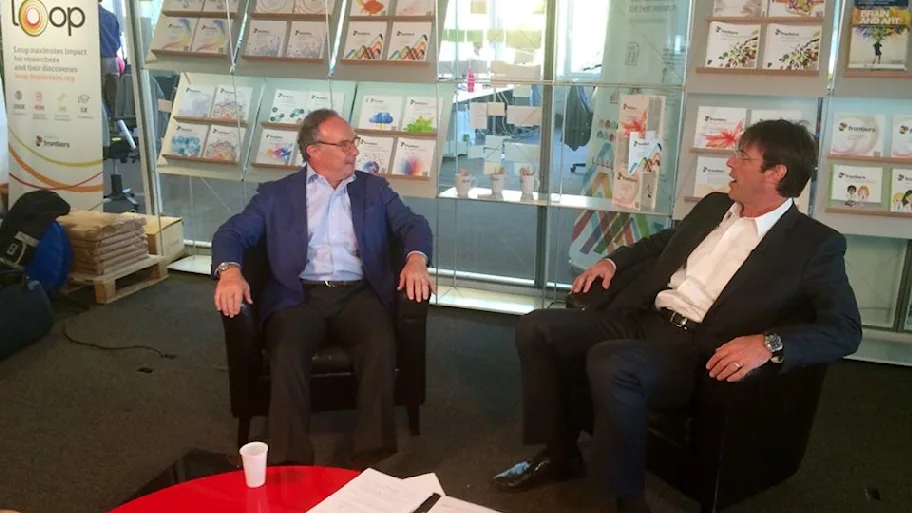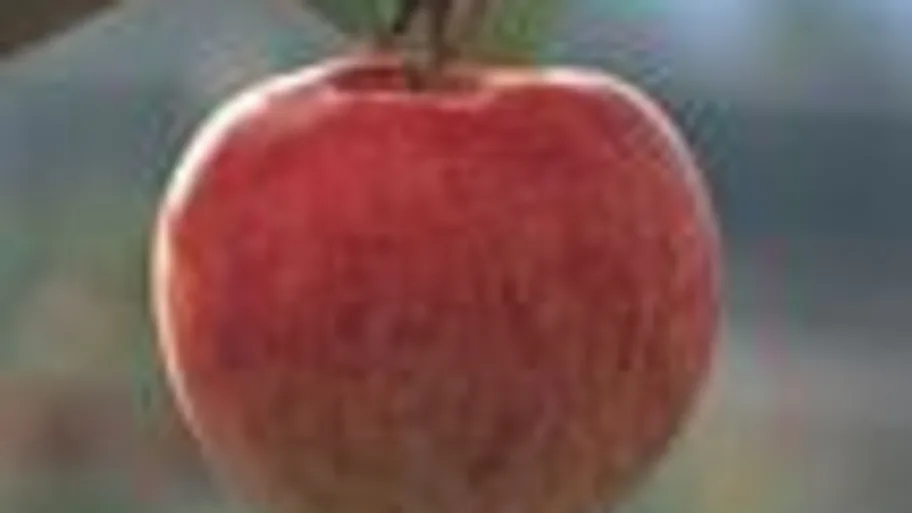
- Science news
- Top news
- In conversation with Johannes le Coutre, Field Chief Editor for Frontiers in Nutrition
In conversation with Johannes le Coutre, Field Chief Editor for Frontiers in Nutrition
With more than 4,000 citations, 3.5 million views and downloads, and it’s recent inclusion in the Web of Science Group’s Journal Citation Report (Impact Factor 3.365), Frontiers in Nutrition is going from strength to strength. We take the opportunity to reflect on the journal’s success with its Field Chief Editor Johannes le Coutre.
Professor le Coutre is the founding Field Chief Editor for Frontiers in Nutrition and Professor of Food and Health at the University of New South Wales (UNSW) in Sydney, Australia. His work involves developing a broad research agenda on cellular agriculture, with the goal to strengthen food security and to alleviate the agricultural burden on the environment. Prior to joining UNSW, Professor le Coutre worked as a Senior Research Scientist and Head of Perception Physiology at the Nestlé Research Center in Lausanne, Switzerland, before taking on the role of Head of the Greater London Research Program where he led a portfolio of scientific collaborations between Nestlé and lmperial College London.
In a recent interview with Frontiers in Nutrition’s journal manager, Lauren Taylor, Professor le Coutre shares his experiences and vision for the journal, as well as the challenges and developments he expects in the field of nutrition sciences.
Lauren Taylor: You joined as founding Field Chief Editor when the journal was launched in 2014. What attracted you first to Frontiers in Nutrition?
Johannes le Coutre: Up until the launch of Frontiers in Nutrition there has been no fully integrated scientific journal that would cover all aspects from molecular nutrition physiology to unit operations in factories to meals and diets around the globe. If you were working on the effects of Mediterranean diet on cognitive decline it was difficult to find an appropriate journal to publish your work. Everybody – scientist or non-scientist – has a relationship with nutrition, which is not necessarily the case in other scientific disciplines. We wanted to launch a journal that caters into this need with a strict and rigorous scientific approach, yet with the ambition to capture the entire and complex field. Based upon this scope we are also trying to appeal to a broad readership and audience. Now we see that many other publishers are trying to replicate our approach.
LT: What do you think has contributed most to the success of the journal so far?
JLC: The board. Without a question, we have a stellar assembly of internationally known and highly reputable scientists to serve as Specialty Chief Editors and our Journal Impact Factor (3.365) is entirely the outcome of their hard work. Moreover, throughout the years we succeeded to refine and adapt the strategic scope of our 13 sections.
LT: Which research areas would you like to publish more papers on in Frontiers in Nutrition?
JLC: It is not so much about what I would like but more about the areas that do require more attention. Over the past five years all health and sustainability related topics gained significant traction. We are talking about “planetary health” and based upon the intense discussions about climate change or the impact of coronavirus on our food systems we are well advised to put more focus on these topics.
LT: What is your vision for Frontiers in Nutrition in the next five years?
JLC: Funny that you should ask. With the entire board we are in the process right now of writing an extensive manuscript for an article entitled “Goals in Nutrition Science 2020-2025”, which is the continuation of an article with the same title published for the period of 2015 to 2020. As mentioned already, both personal and planetary health are increasingly playing an important role and we will be incorporating this. Moreover, now that we have a Journal Impact Factor we will have to work with the underlying metrics. It will be great to strengthen the Impact Factor while still being considered a journal with a rapid turnaround and solid reviewing process.
Clearly, the vision would be to establish Frontiers in Nutrition as the world leading scientific journal in the food and nutrition science domain.
LT: What challenges and developments can we expect to see for this field in the next few years?
JLC: Twenty years ago people started to talk about “functional foods” and the idea of a targeted health benefit underlying consumption of a specific food seemed quite radical. The discussion evolved toward “personalized nutrition”, “precision nutrition” and today we even see a credible dialogue about the prevention of dementia or the extension of life span through dedicated nutritional interventions.
LT: Can you tell us about your current work on cellular agriculture at UNSW Sydney?
JLC: Cellular agriculture is the name for a growing field of activities that are deeply rooted in existing technology to produce food. It combines elements of agriculture, life science, medical research, and engineering with the goal of growing edible tissues from vegetables or meat at the cellular level. The aim is to greatly modernize and invigorate our traditional agricultural methods, which often exhaust the land and use enormous amounts of water. Usually, food, nutrition, and health programs are run in life science environments, so I think our materials science approach at UNSW can make a valuable contribution. It’s cellular agriculture that will enable us one day to eat meat without having to kill an animal.






